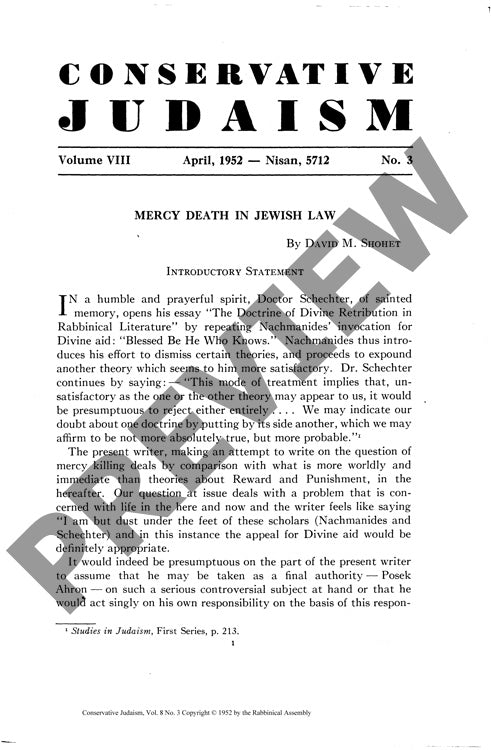Mercy Death in Jewish Law
Couldn't load pickup availability
Can Jewish law permit ending a life out of mercy? Through systematic analysis of Biblical, Talmudic, and rabbinical sources, a complex legal framework emerges that suggests euthanasia may be permissible under specific circumstances. Authoritative opinions from various schools of Jewish thought reveal nuanced interpretations of the legal status of a *go-ses* (dying person), the principle of *chaye sha-ah* (preserving even momentary life), and the commandment "Thou shalt not kill" in cases of terminal suffering. Rabbinical scholars diverge on whether a *go-ses* is legally considered alive or dead - a distinction with profound implications for hastening death. Historical precedents, including King Saul's case and Rabbi Haninah ben Teradyon's martyrdom, demonstrate crucial distinctions between premeditated killing with malice (*ormah*) and mercy death. Moreover, rabbinical authorities acknowledge that praying for death may be justified when suffering exceeds the value of remaining life. The analysis concludes that Jewish law may permit euthanasia when properly supervised by civil, religious, and medical authorities, specifically for terminally ill patients experiencing intolerable pain with no hope of recovery and imminent death. This examination of traditional Jewish legal perspectives offers valuable insights for contemporary bioethical debates on end-of-life decisions.

More Information
-
Physical Description
-
Publication Information
Published 1952
ISBN
-
Publication Credits
David Shohet

